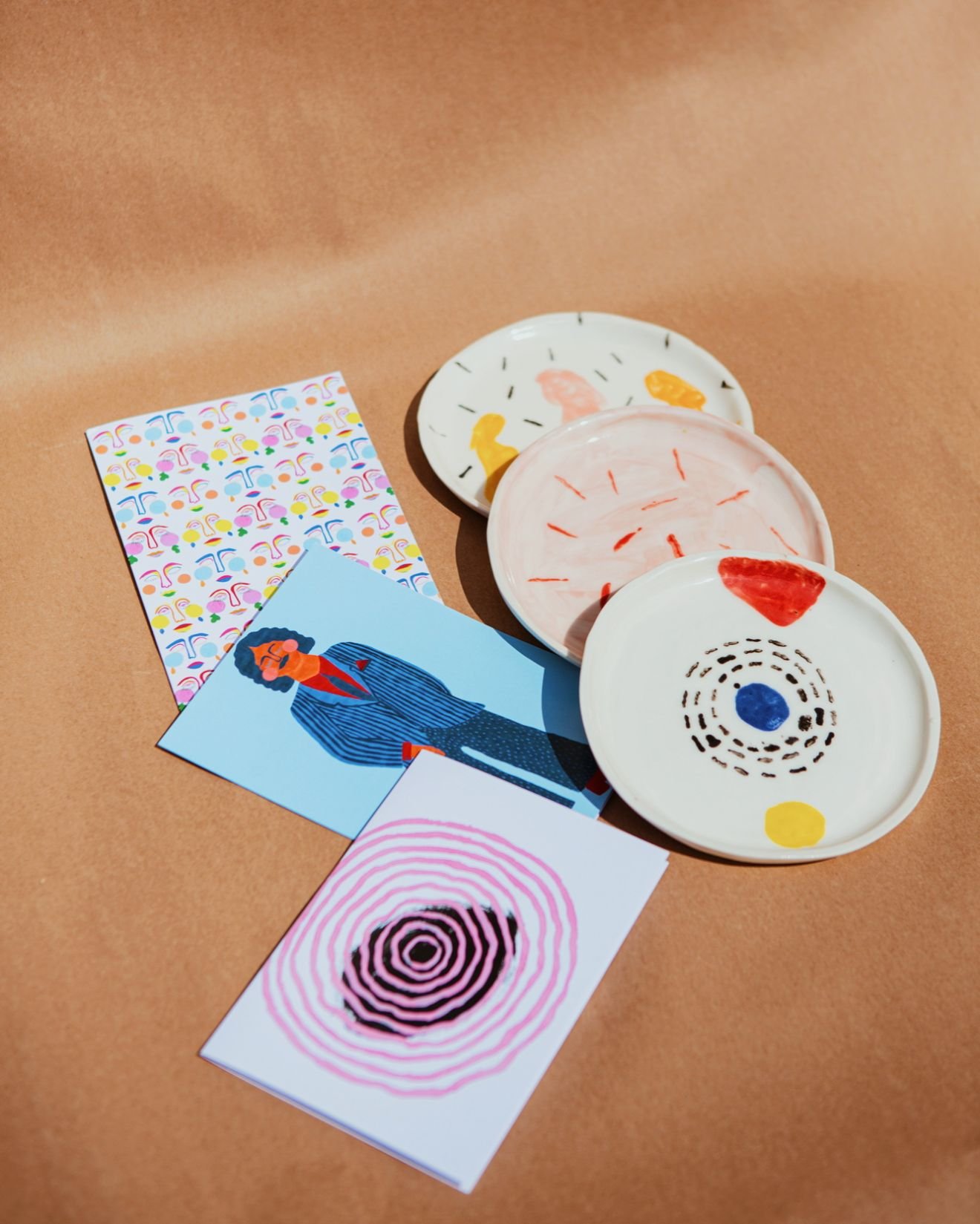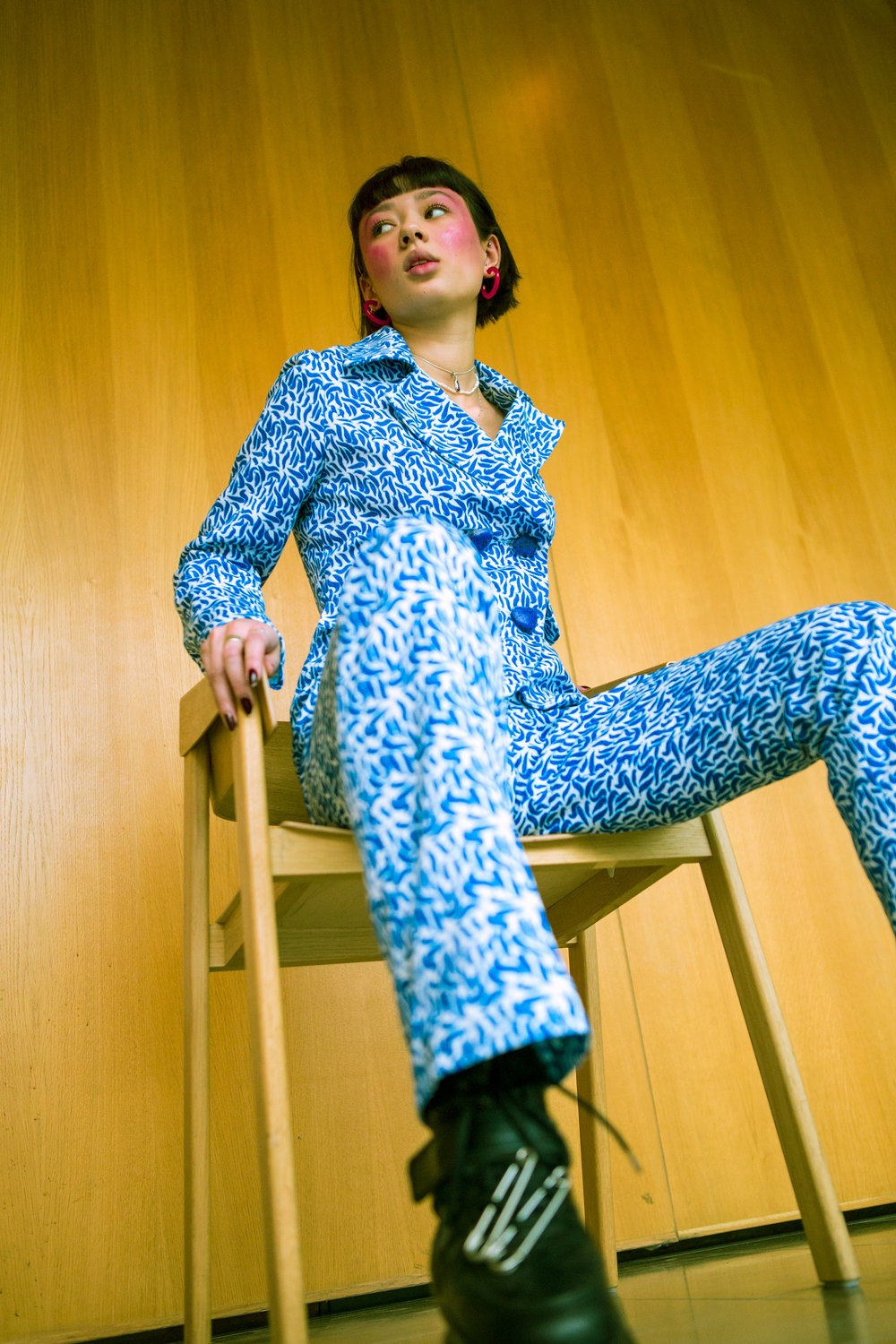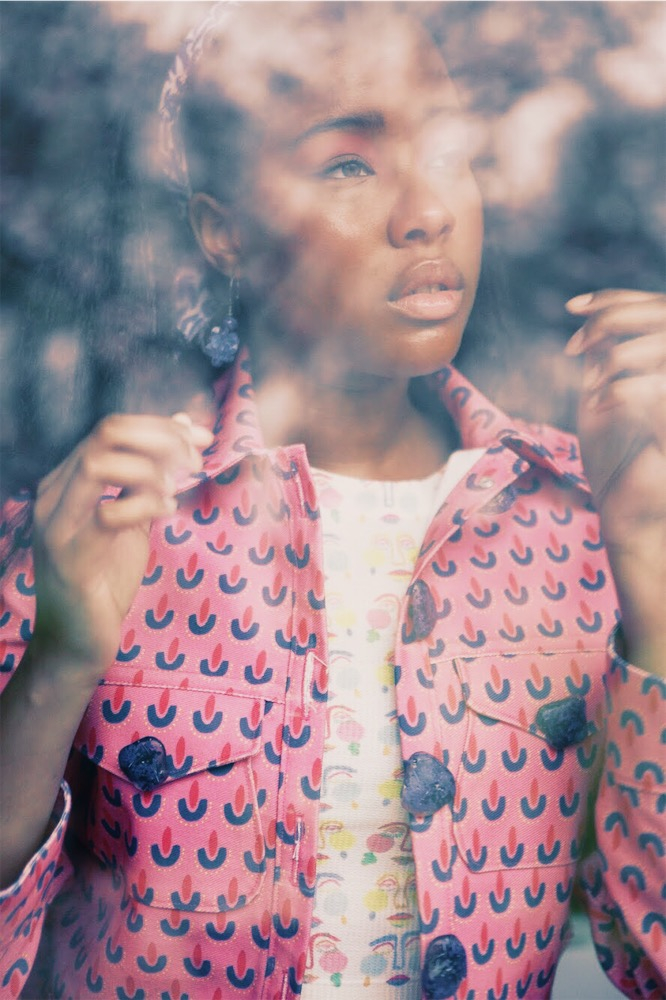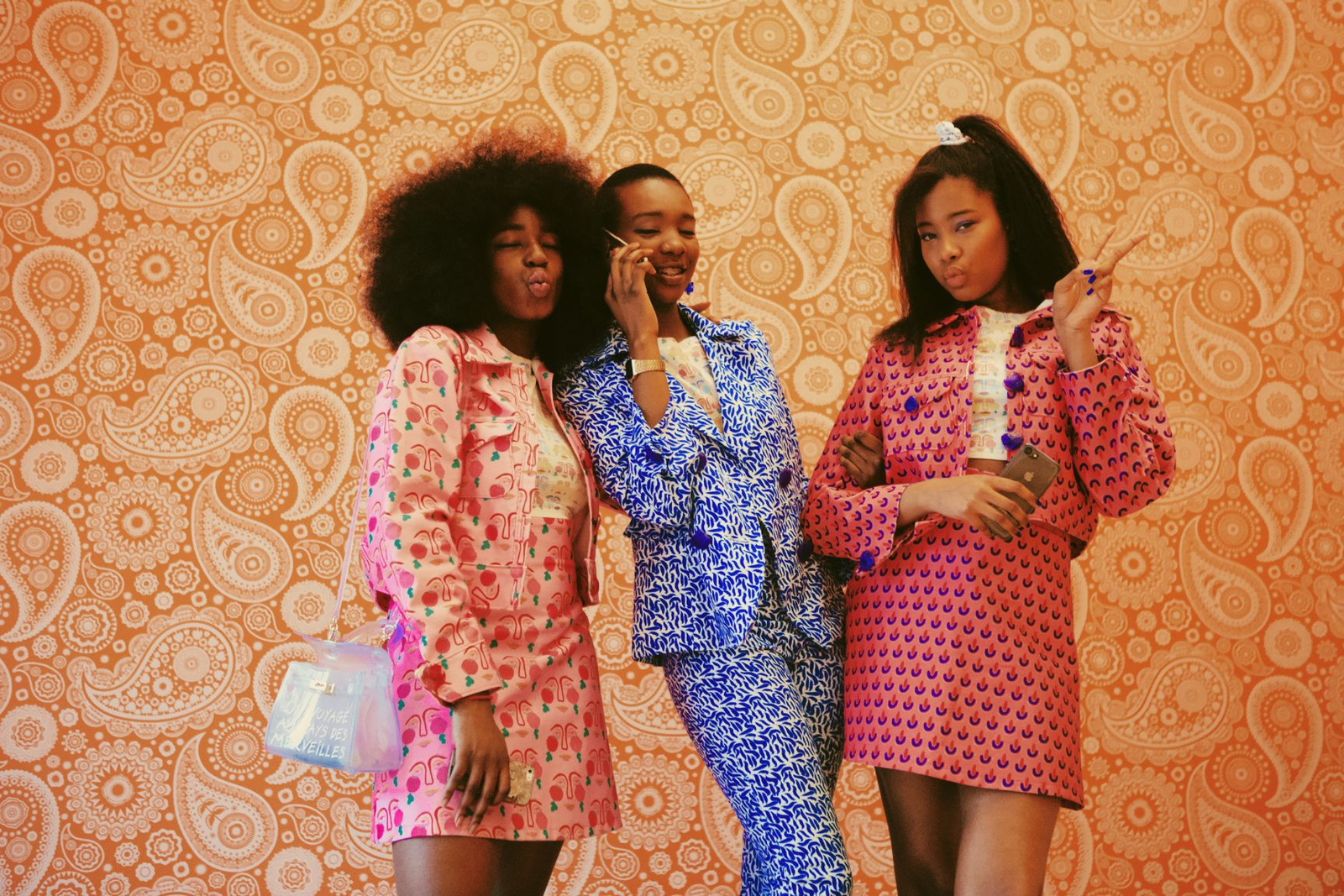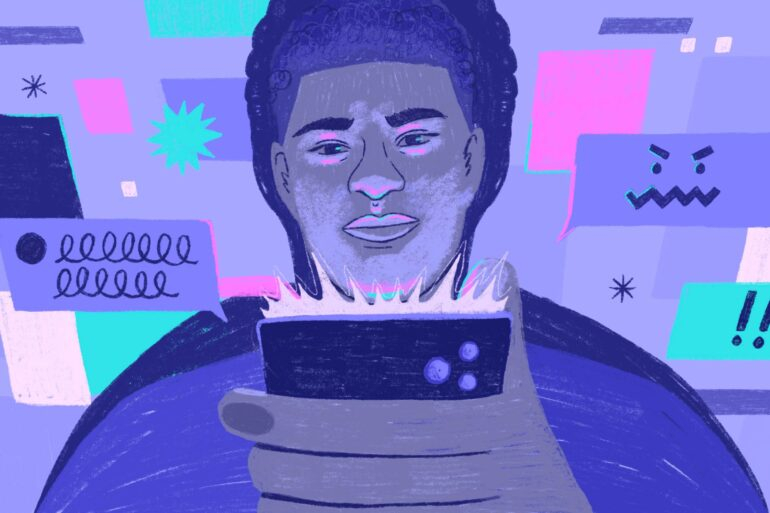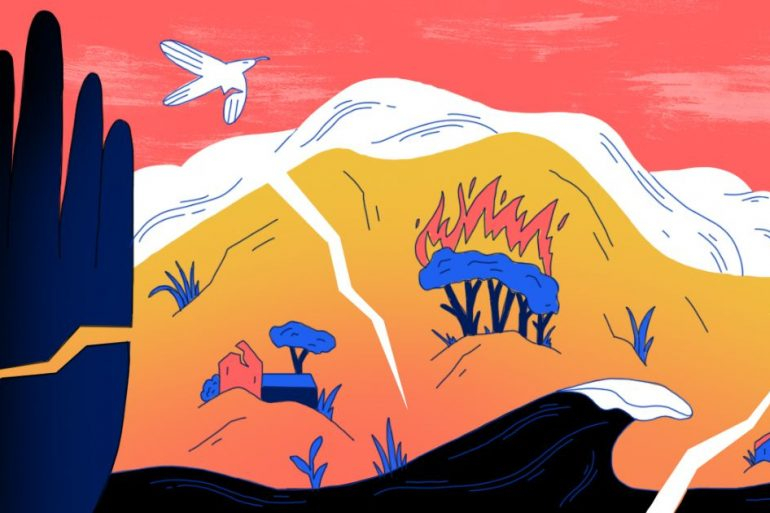After being introduced to Bukky Baldwin at the DBACE awards earlier this year, shado sat down with Bukky Baldwin’s founder, Ibukun to find out more about the concept, her goals and how she is determined to use the company as a tool and champion for positive socio-economic change.
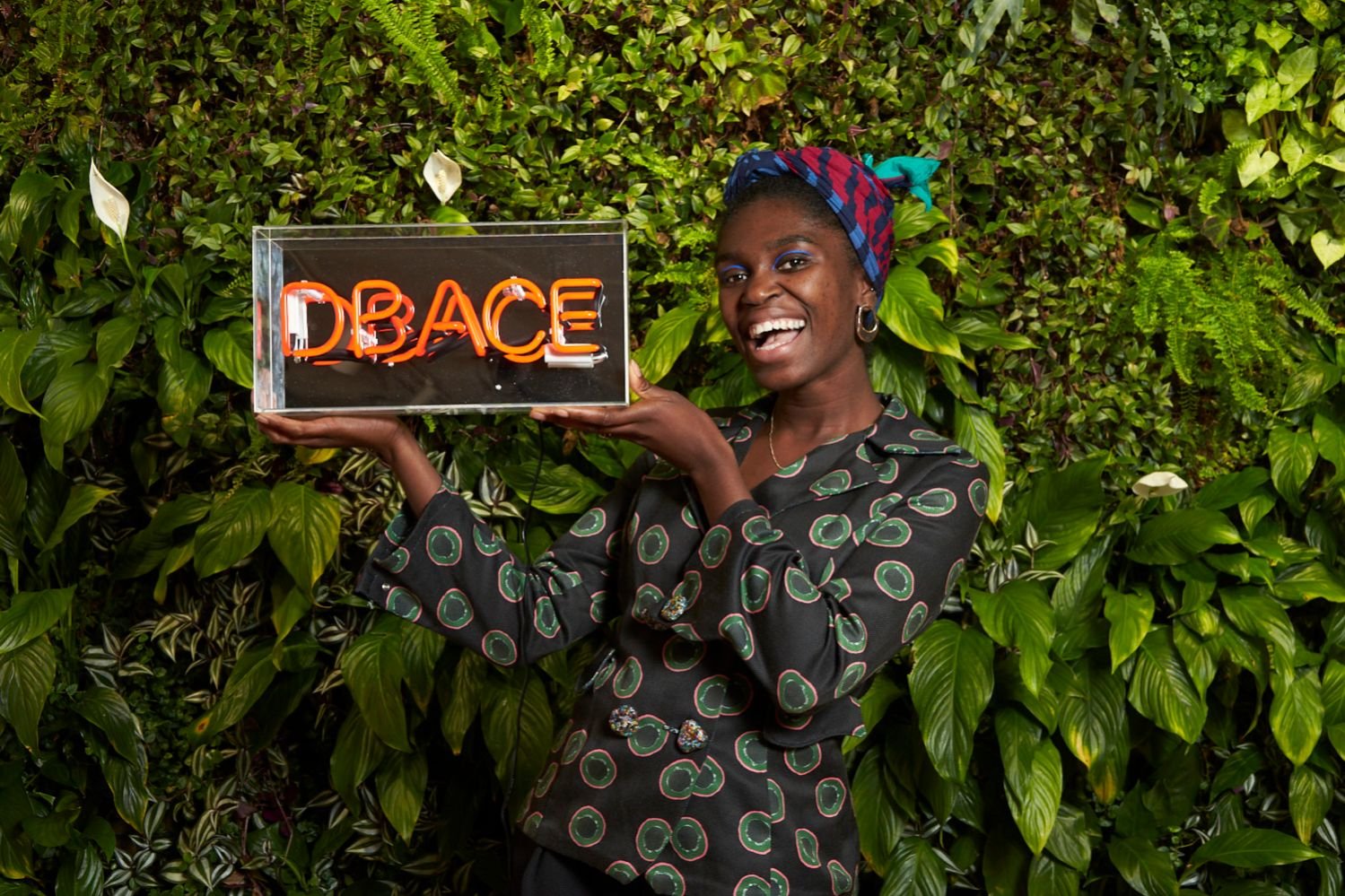
What is Bukky Baldwin?
Bukky Baldwin is an ethical fashion and textile company based in Manchester which aims to break cycles of unemployment within marginalised communities. It does this by building safe, fair and productive spaces and workshops for refugees and those who are currently unemployed to learn new skills and offers opportunities to assist with creating its unique, hand-crafted items (e.g. prints, crockery, clothes etc).
How has your career as an artist led you to this?
I have always had a love for colour, textures and pattern designs so, when the time came for me to go to uni, I decided to study Textiles In Practice at Manchester School of Art. And I loved it. I had always dreamt of one day working for one of the many fashion brands we know today come graduation but after taking a year out to do community work my dream changed. After seeing the great need within homeless and refugee communities and learning how certain charities go about helping them through volunteering for a few, I became determined to find a way to use my creative skills as a tool for good and help people. And that’s how Bukky Baldwin came to be.
Who are some of your biggest influences in the fashion industry and why?
I would say my biggest influences in the fashion industry in terms of production are high-end fashion brands because it is seeing them being called out for their subpar ethical practices that has inspired me to want to create a different and more ethical way of serving this industry and its customers. And in terms of the overall vibe of Bukky Baldwin, I would say it was seeing people like Man Repeller’s Leandra Medine dress in a way which felt so unapologetically her and fun that made me want to create pieces which can allow people who love a bit of colour to express themselves and take part in fashion for the pure enjoyment of it.
Can you tell us a bit about your main aims and motivations for Bukky Baldwin – and in particular how you are merging both fields of fashion with social impact.
My main aim for Bukky Baldwin is to reform practices with the fashion and textile industry. I think all businesses have a responsibility to not only deliver great products and / or service to their customers and take care of their employees but to also make products and / or carry out services in a way that is not detrimental to the way of life of the communities they serve. And that’s what I want for Bukky Baldwin. From ideation to delivery, I want my company to always maintain social, environmental and economic integrity. And for me, that includes helping people within marginalised communities break out of negative cycles through curated workshops whilst creating unique, quirky, fun handcrafted products together.

From your experience what are some of the biggest barriers asylum seekers are facing with regards to employment and how do you hope Bukky Baldwin can tackle this?
One of the biggest barriers asylum seekers face is coming here and having all their work experience essentially wiped clean. In my current workshop group, there are architects, business managers and experienced artists whose qualifications are not recognised here because they were not gained in this country. And it is difficult to go from being considered a professional in your home country and then have your work experience not recognised at all. So, although my business cannot give them their qualifications back, it creates a way for people to gain new ones with an established UK business.
A lot of businesses don’t want to take the “economic risk” of hiring someone without “on-paper” experience so what Bukky Baldwin is doing is getting all these people with no discrimination and making sure that they get the help they need to progress and career wise if they can.
For asylum seekers one of the main challenges they face is not being permitted to work whilst they are given a mere £35 a week to survive. And being on that lower income, they don’t have the funds to live a life of leisure or go out and do things that help improve one’s mental health or maintain a healthy lifestyle; they’re often homebound without being able to afford to do anything. So, for those not permitted to work, I provide a space where they can use their skills, their mind and learn new skills as well as; it is a way for them to be part of a community and not be mostly housebound. The workshops they do covers their time here.
How do you think the fashion/ arts/ textile industry can be mobilised to help communities facing lack of support with regards to integration, inclusion and equality?
The fashion/ arts/ textile industry are in a unique position where it’s a handmade craft – as in no one automatically can create fashion garments or textile pieces; it’s a craft that’s learnt from scratch. So they’re in a unique position to be able to create a skills-sharing environment for all skill levels. I think a big thing that can help, that needs to happen, is selflessness within the industry. Basically, by creating opportunities for these people and giving them a chance to share their skills within the community, a larger, dynamic and more creatively diverse community can be formed.
A creative environment has a unique way of forming community because in a situation where people are creating, they are kind of putting their personality out in a visual way which is such a good and fun way to get to know each other.
So, by providing these workshops and getting its target audience on board with the creative process gives opportunities for these communities to express themselves, which I think is important and will really change a lot of people’s lives.
Where do you hope to take Bukky Baldwin in the next year and 5 years after that?
What I hope for the next year is to really get Bukky Baldwin established as a brand in the public eye. I want to make it accessible to people as an ethical, sustainable alternative and have something that everyone can get or take part in the business. I want to provide for as many marginalised groups as possible and find more ways to integrate them and empower them through the production process.
5 years after that, I want to have several stores like this across the country where people are provided for; I want them to be creative hubs for people to learn and to find opportunity and betterment for themselves. I want Bukky Baldwin to be a hub of empowerment for marginalised groups all over the country and just grow from there.

What has been the response so far to your products and process by local communities in Manchester?
Subscribe to shado's weekly newsletter
Exclusive event news, job and creative opportunities, first access to tickets and – just in case you missed them – our picks of the week, from inside shado and out.

The response so far has been amazing from both ends, the refugee group that we have on the first 3-month training scheme, have absolutely loved it, to the point where each workshop is full and we’re looking to grow the training course to fit more people. The group has also visibly grown in confidence and creative autonomy each week prop more wonderful and unique pieces.
And the public have loved the products and we’re looking to expand the range and sell some pieces online so international fans of the brand can have access.
